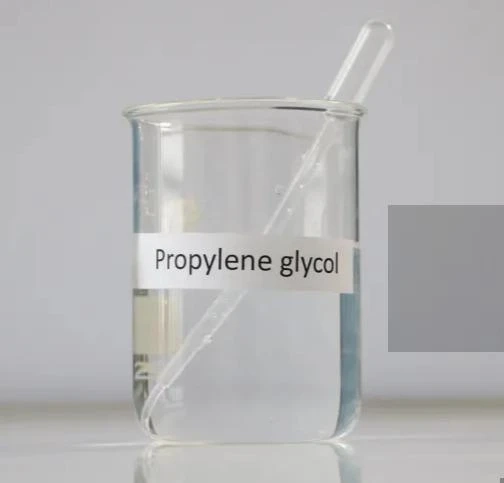Propylene glycol, a synthetic organic compound, has gained significant popularity and widespread usage across various industries. From cosmetics and pharmaceuticals to food and beverage production, propylene glycol plays a vital role. In this article, we delve into the secret factors behind its success, highlighting its advantages and disadvantages. Furthermore, we analyze the propylene glycol market, emphasizing its growing importance in the global economy.
Secret Factors behind Propylene Glycol's Success:
Propylene glycol owes its success to several key factors. Firstly, its versatility makes it suitable for a wide range of applications. It acts as a solvent, humectant, and stabilizer, making it an essential ingredient in numerous products. Additionally, its ability to mix easily with water and other solvents further enhances its utility.
Secondly, propylene glycol's relatively low toxicity and favorable safety profile have contributed to its widespread acceptance. It is generally recognized as safe by regulatory authorities, which has facilitated its use in various consumer products. This factor has played a crucial role in its success within the pharmaceutical and food industries.
Thirdly, propylene glycol's stability and long shelf life make it an attractive choice for manufacturers. Its chemical properties enable it to preserve the quality and integrity of products over extended periods, ensuring customer satisfaction and reducing waste.
Advantages of Propylene Glycol:
Propylene glycol offers several advantages that have propelled its growth in the market. One key advantage is its excellent solvency. It can dissolve a wide range of substances, including various flavors, fragrances, and active pharmaceutical ingredients. This property makes it an indispensable component in the formulation of medicines, cosmetics, and food products.
Another advantage of propylene glycol is its hygroscopic nature. It has the ability to attract and retain moisture, making it an ideal ingredient in personal care products, such as moisturizers, lotions, and soaps. Furthermore, its humectant properties help prevent the drying out of food products, extending their shelf life.
Additionally, propylene glycol exhibits thermal stability and low volatility, making it suitable for applications that involve high temperatures. It serves as a heat transfer fluid in systems such as HVAC (Heating, Ventilation, and Air Conditioning) and refrigeration, ensuring efficient energy transfer and temperature control.
Disadvantages of Propylene Glycol:
Despite its numerous advantages, propylene glycol does have certain disadvantages that need to be considered. One significant drawback is its potential for skin irritation in some individuals. While it is generally safe for use, some people may experience allergic reactions or sensitivity to products containing propylene glycol. It is crucial for manufacturers to label their products accurately and provide appropriate warnings.
Another disadvantage of propylene glycol is its environmental impact. Although it is biodegradable, its production process involves the use of fossil fuels, contributing to carbon emissions and climate change. Efforts are being made to develop more sustainable production methods and explore alternatives to minimize the ecological footprint associated with propylene glycol.
The Growing Propylene Glycol Market:
The propylene glycol market has witnessed significant growth in recent years, driven by its expanding applications and increasing demand across various industries. Its role as a key ingredient in pharmaceuticals, cosmetics, and food and beverage products has been instrumental in its market success. The market has also benefited from the growing awareness regarding the importance of personal care and wellness, driving the demand for propylene glycol-based products.
Furthermore, the rising need for efficient heat transfer fluids in industrial processes and HVAC systems has contributed to the market's expansion. The market is expected to experience continued growth as new applications and technological advancements emerge.
Read More Information@ https://www.kdmarketinsights.com/reports/propylene-glycol-market/7286


